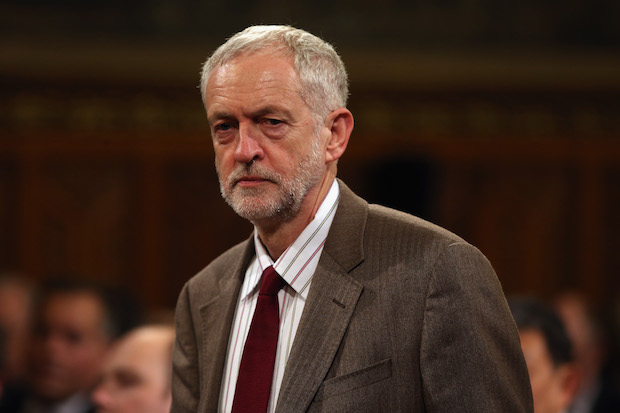Journalists aren’t allowed inside the meetings of the Parliamentary Labour Party. But this evening they got a glimpse of just how high tensions had been running when Jeremy Corbyn faced his MPs when the press briefing from the Labour leader’s spokespeople descended into a loud stand-off in the corridor between them and one of his most vocal opponents, John Woodcock, who took issue with the official account of the meeting that was being offered, accusing the aides of a ‘highly distorted account’.
Other MPs leaving the meeting said it was ‘heartbreaking’, and ‘awful, just awful’. They could be heard applauding criticisms of the Labour leader during the meeting. Senior figures such as Harriet Harman and Alan Johnson were looking ‘distraught’ and on the verge of tears, according to this leaving the meeting.
The Labour leader told MPs that they needed to unite and Labour must be an anti-austerity party. He did not, according to those in the room, offer any answers to the stream of accusations that he could not motivate Labour voters to back his party, let alone persuade anyone else.
Ian Murray, whose staff were apparently left ‘terrified’ by a demonstration outside his office following his resignation, asked Corbyn to ‘call off the dogs’, but his spokespeople afterwards said they had not received any reports of intimidation.
Some, such as Jess Phillips, were openly begging the Labour leader to see sense and stand down – though Phillips also told Corbyn that she didn’t know why she was bothering as he wouldn’t listen to her anyway. Other critical speakers included Yvette Cooper, Rob Flello, Steve McCabe, and Chris Matheson, who made a powerful contribution about winning his marginal seat with a majority of 93. He told Corbyn that ‘I’ve done something you’ve never done, and that’s beaten the Tories’. He also told the leader that he agreed with him on everything and his politics were right, ‘but you’ve got to go’.
Another said ‘MPs were upset and devastated the Labour Party is being destroyed. There were no furious denunciations and all remarks were prefaced with how decent he was. But Jeremy just won’t take responsibility. The people around him bear a heavy responsibility.’
As for that briefing, after the meeting Corbyn’s spokespeople were adamant that he was going nowhere and that his enemies would have to try to win a leadership contest. ‘He will continue to focus on the issues that matter to people,’ said his spokesman. There was ‘one way, if people want to change the leadership of the Labour party, that is to stand a candidate, get the nominations, stand a candidate, and mount a challenge and have an election. Jeremy will be a candidate in that election. So it’s very straightforward, all of this is a side issue, all the resignations are a side issue and a distraction from that point, a distraction from what the Labour party should be doing…’
It is clear Corbyn is going nowhere. But his parliamentary party has clearly had enough. And that means that the Labour party is heading for a deeply troubled time.







Comments